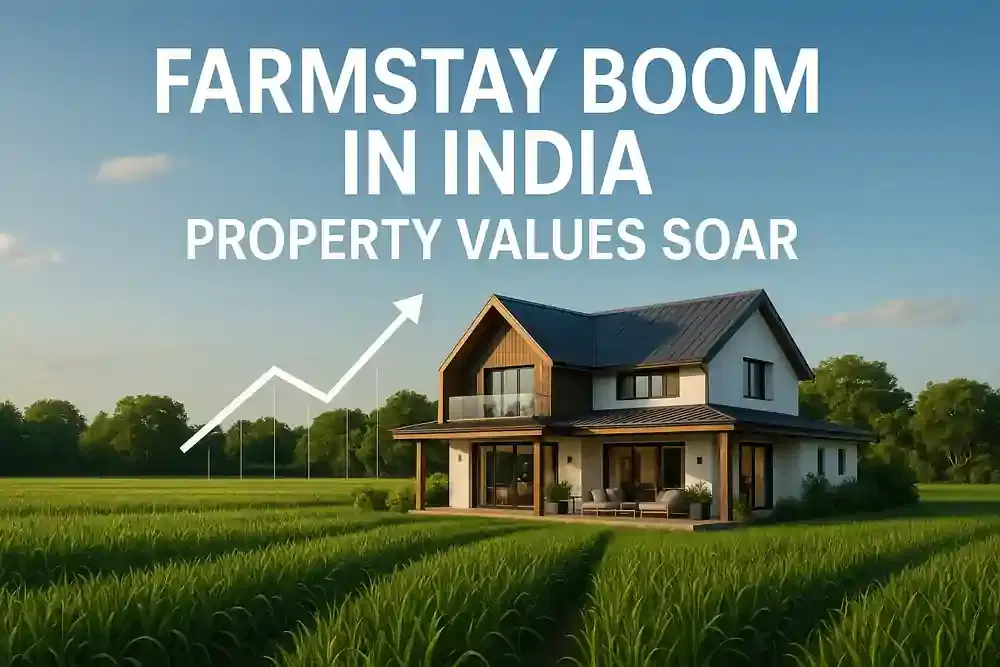India's Farmstay Market Booms as Urban Indians Seek Green Escapes, Projected to Reach Rs 63,000 Crore by 2029
Real Estate
|
29th October 2025, 6:06 AM

▶
Short Description :
Detailed Coverage :
India's organized farmstay market is on a significant growth trajectory, fueled by a societal shift away from stressful city living towards peaceful, nature-surrounded environments. The market is currently valued at an estimated Rs 16,100 crore for 2025 and is forecast to surge to Rs 63,000 crore by 2029, indicating a robust annual growth rate of approximately 41%.
Currently, the country has about 17,700 farmstay units across more than 150 projects. Projections indicate this number will rise substantially to 46,000 units by 2029, expanding across an estimated 37,050 acres, up from the present 11,140 acres.
Southern India dominates the market, holding half of all organized farmstays, followed by the western region with about 29%. The demand is driven by "urban fatigue," as people seek wellness, cleaner air, and more space. The rise of remote and hybrid work models has further facilitated this trend, allowing professionals to live and work from serene countryside locations. Popular farmstay destinations are emerging near major cities like Bengaluru (Nandi Hills), Mumbai (Panvel, Karjat, Alibaug), and the NCR region. Beyond lifestyle, farmstays are also attracting investors looking for rental income from weekend getaways and events.
Impact: This trend signifies substantial growth opportunities in the real estate, hospitality, and tourism sectors, potentially impacting companies involved in land development, property management, and leisure services. The overall impact on the Indian stock market, considering its growing contribution to the economy and employment, is rated at 7/10.
Difficult terms: Farmstay: A dwelling, typically a house or cabin, located on a working farm or in a rural agricultural setting, often rented out for accommodation. Organised farmstay market: Refers to farmstay properties that are professionally managed, marketed, and often part of larger developments or chains, providing standardized services and amenities. Urban fatigue: A state of physical and mental exhaustion caused by the stresses of living in a fast-paced, crowded, and polluted urban environment. Wellness tourism: Travel undertaken for the purpose of promoting health and well-being, often involving activities like spa treatments, yoga, meditation, and healthy living. Eco-conscious living: A lifestyle that prioritizes minimizing environmental impact through sustainable practices and choices. Remote/hybrid working: Work arrangements where employees perform their duties from locations other than a traditional office, either entirely remotely or for a portion of the workweek.